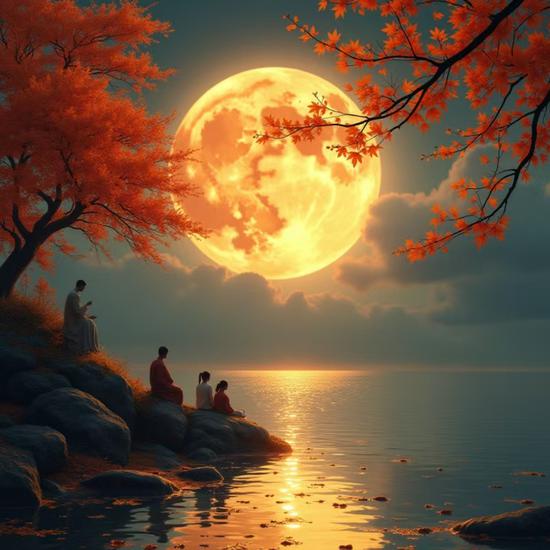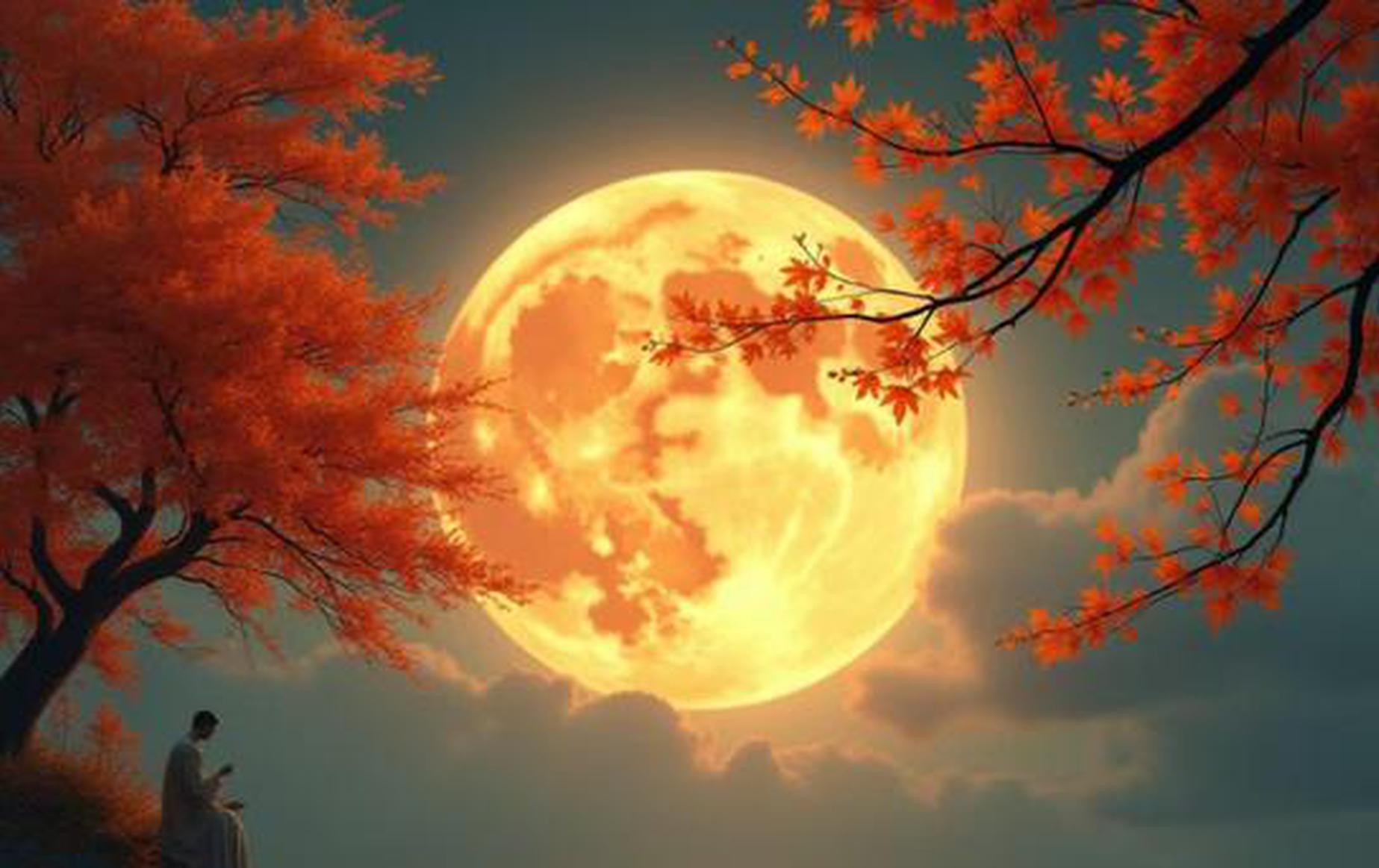Ancient poems resonate with Mid-Autumn longing
(ECNS) -- The Mid-Autumn Festival is a traditional Chinese festival celebrated on the 15th day of the eighth month of the Chinese lunar calendar. It falls on Sept. 17 this year.
Dating back more than 2,000 years, it typically symbolizes family reunions, harvest, and happiness. The word "Mid-Autumn" first appeared in the famous Zhou Dynasty (1046 BC - 256 AD) book Zhou Li (The Zhou Rituals, a book telling the rituals).
It is also known as the “Moon Festival” since, at this time of year, the moon is at its roundest and brightest.

Chinese poets have long observed Mid-Autumn Festival, with their works resonating across generations.
1. Prelude to Water Melody by Su Shi
Known as "Shuidiao Getou" in Chinese, it is one of the most classic Mid-Autumn poems written by Su Shi, a great poet during the Northern Song Dynasty (960-1127).
“Men have sorrow and joy; they part or meet again;
The moon is bright or dim and she may wax or wane.
Nothing has been perfect since the olden days.
So let us wish that man
Will live as long as he can!
Though miles apart, we'll share the beauty she displays.”
(The excerpts translated by Xu Yuanchong)
Su wrote this poem during the Mid-Autumn Festival of 1076 to express his longing for relatives and friends. The last two lines as written in Chinese are still used by those who can’t reunite with their family during the festival.
These everlasting lines capture the poet’s optimism when he can’t change the status quo. Nowadays, friends and family members admire the same moon from afar, wishing each other nothing but health and happiness.
2. Looking at the Moon and Longing for One Far Away by Zhang Jiuling
This poem, written by Zhang Jiuling, the Tang Dynasty (618-907) official and poet, describes being far away from home and the restless longing to reunite on a full-moon night.
“Over the sea grows the moon bright;
We gaze on it far, far apart.
Lovers complain of long, long night;
They rise and long for the dear heart.
Candles blown out, fuller is light;
My coat put on, I’m moist with dew.
As I can’t hand you moonbeams white,
I got to bed to dream of you.”
(Translated by Xu Yuanchong)
The first two lines of the verse are mostly recited. It depicts the moon rising slowly above the ocean and everyone being bathed in its light.
Gazing at the moon has become a long-standing custom during the festival. This shared act between loved ones creates a sense of connection even if they are far apart.
3. Moon-Gazing on the Fifteenth by Wang Jian
The title of this poem is even more self-evident. Written by Wang Jian(765-830), a poet of the Tang Dynasty, it is included in the classic anthology Three Hundred Tang Poems.
“Center court, pale ground and crows nestling in the trees,
Cold dews quietly wetting the osmanthus blooms.
Tonight’s full moon gazed at by everyone,
Wonder whose home is hit by the falling gloom.”
(Translated by Ren Zhiji & Yu Zheng)
The poet spent the evening of the festival alone while everybody else was having a good time. The loneliness awoke thoughts of his distant home and a sense of nostalgia.
The moon is not mentioned until the third line “Tonight’s full moon gazed at by everyone”. And the poet ends with an interrogation “knowing not whom the autumn homesickness falls on”.
Apart from moon gazing, it’s usually a time for families to gather and share moon cakes. And since the osmanthus flowers are usually in full bloom around the mid-autumn day, it’s also a tradition to enjoy osmanthus flowers and sweet-scented osmanthus wine.
As one of the four major traditional holidays in China, the Mid-autumn Festival was listed by the government as an intangible cultural heritage in 2006. It was made a public holiday in 2008.
If you are also far away from home or live abroad alone, remember to celebrate this festival together with us on Sept. 17.

